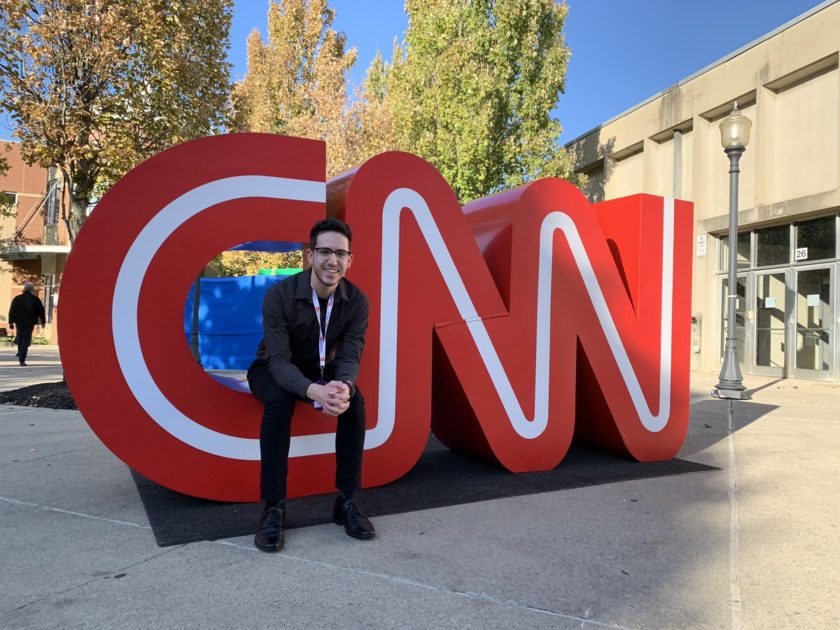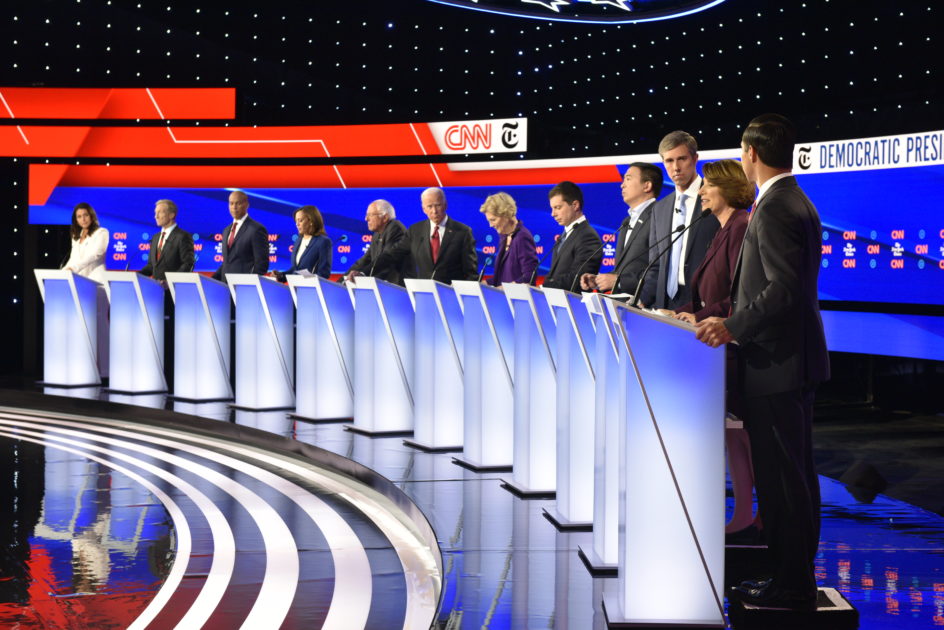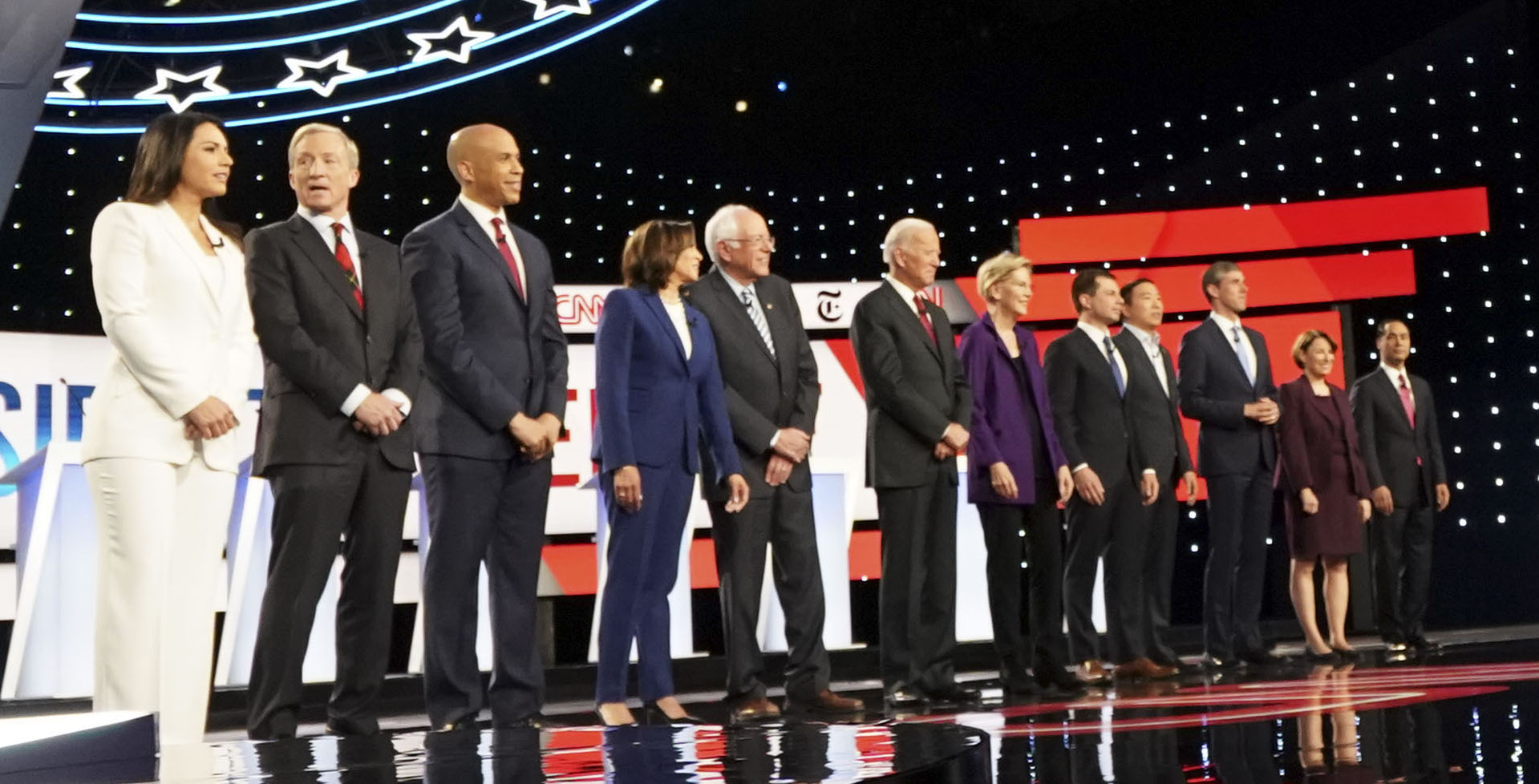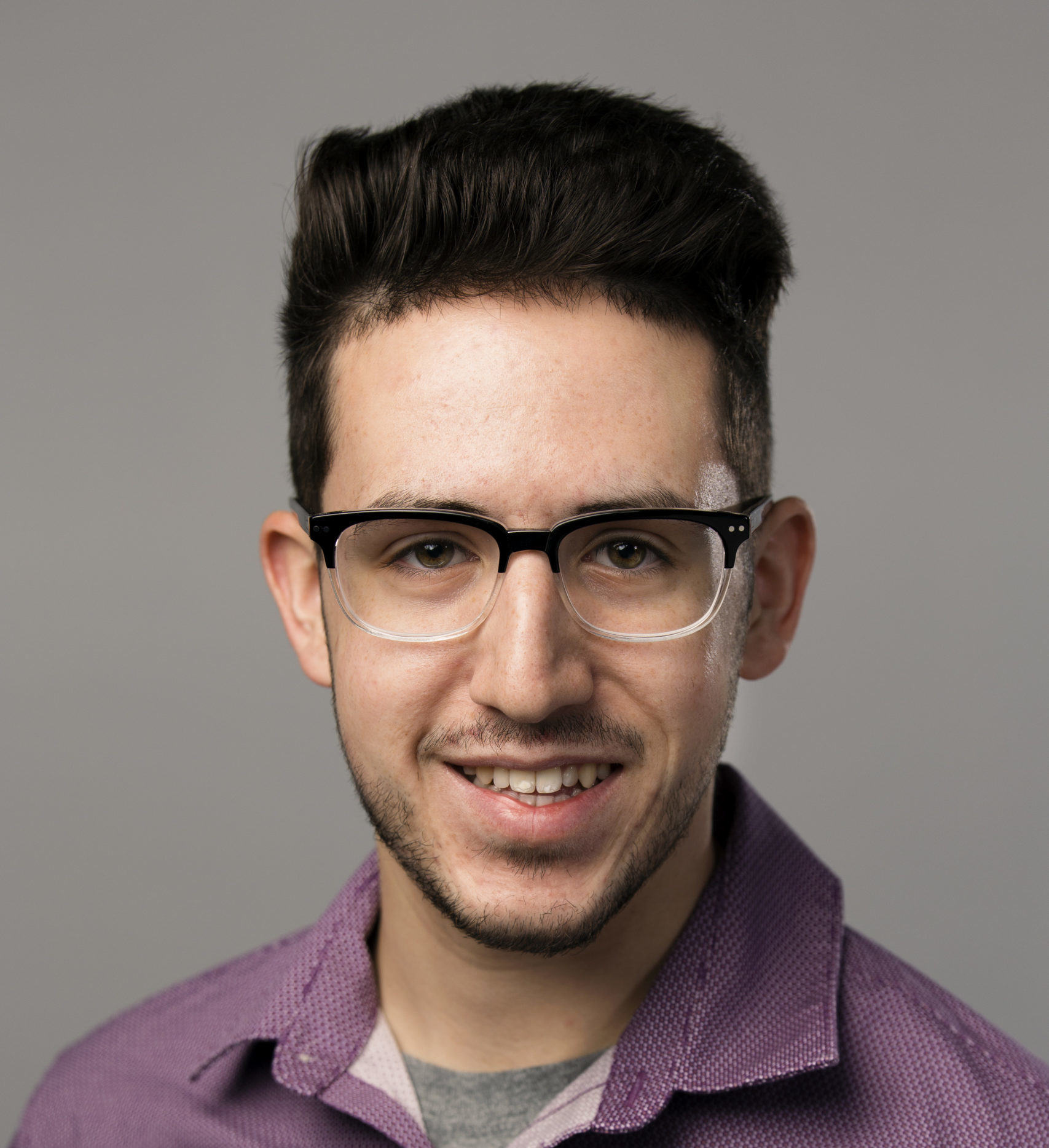Oct. 15 will go down as a monumental day for many.
For Otterbein University and the cities of Westerville and Columbus, it was a moment in the national spotlight. For the country, it was the largest presidential debate in history with 12 candidates sharing a packed stage in the Rike Center.
For me, it was my second ever press event, and my first time covering politics in any form. I was surrounded by some of the best and brightest journalists from around the country.

How was I going to cover this event?
It was clear that we at The Chimes weren’t going to beat out any major media outlets. Some of the journalists sitting next to me, such as Jess Bidgood of the Boston Globe, had probably been preparing for this debate for weeks. Me, on the other hand, did preparatory research the night before.
We decided to take an angle more focused on our main audience: college students like us.
Throughout the day, we decided to focus on getting the answers to the issues that college students like us cared the most about: gun control, immigration, and higher education.
Added to that list was healthcare and the environment, two issues that have come to light recently thanks in part to bold plans like Medicare for All and in part to young activists like 16-year-old Greta Thunberg actively fighting for change every single day.
Okay, so we have our angle, but how do we most effectively cover it throughout the day? For the first time in my career as a journalism student, I had total freedom of structure—I had to think on the fly to get my story.
By this point, other outlets had been all over the gathering crowds in downtown, so we couldn’t take that angle. My colleague and I had ventured into downtown Westerville at this point and decided to grab lunch at NorthStar Cafe. Unfortunately, we had left the upscale eatery just a few hours before frontrunner Elizabeth Warren decided to stop by and chat with some of the locals.
After getting some perspectives from a group of Otterbein students stranded on their front porch, we decided to settle into the spin room where we would later watch the debate and cover it live.
The room was in a quiet hum and the hours went by slowly.
I noticed journalists of all kinds researching, chatting, and preparing for the long night ahead. Trying to look professional and prepared, I then spent some time researching trends on social media for the debate.
In what seemed like a few moments later, I was outside of the Recreation Center at Otterbein University, and the entire atmosphere had shifted. Time went from a standstill to a rapid pace, and I could feel the buzz and energy of the entire campus pick up.
No longer were soccer players practicing on the field outside of the Rike Center like they were that morning, but standing in their place were correspondents from the likes of CNN, Fox News, and CBS News, to name just a few. If you watched coverage from the Associated Press the other day you may have seen me in the background of some of their shots, nervously walking towards the crowds that had lined up outside of the debate hall.
This is when I finally felt like I had found my angle. I was able to interview students standing in line and get their unique perspectives on what they were looking for in the debate. At that moment I finally felt like a real-life journalist.
Soon after I was back in the spin room, situated in my seat and ready for the night ahead. Covering something like this was nerve-racking, but a ton of fun.
Seeing the drive and passion of the seasoned journalists in the room was inspiring for me and made me realize that my interest in journalism is just about as strong as my interest in public relations, something that has only recently been coming to light as an emerging media public relations major. Being just a few feet away from Marc Lacey himself minutes after the debate concluded was awe-inspiring for me, although I did not work up the courage to introduce myself to him.

The biggest takeaway I have from this debate is that journalism is a crucial aspect of democracy. Journalism may have a bad reputation in the age of so-called “fake news,” but seeing all of these journalists in the room made me realize what real journalism is all about: breaking through the fluff and reporting on the issues that the readers of your publication care about.
Journalists like Anderson Cooper, Marc Lacey, and Erin Burnett were able to shine a spotlight on the important issues of the day the other night and the conversation on stage started with their ever-important questions. That goes to show just how crucial journalists are in cranking the engine that is democracy.
I hope this isn’t the last time I get to cover an event like this. It is something I will remember for the rest of my life.



One thought on “Reflections from the 2019 Democratic Debate”